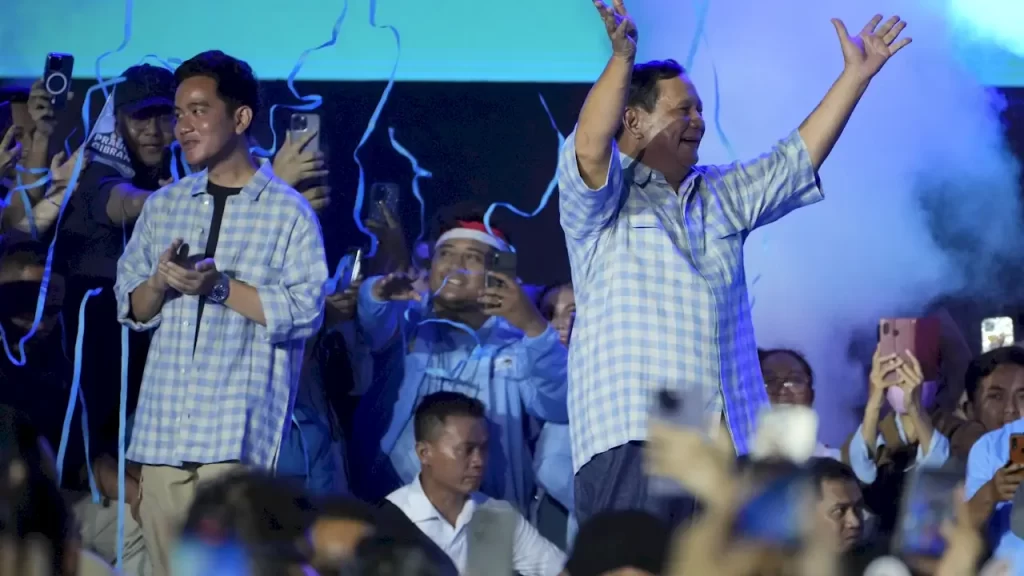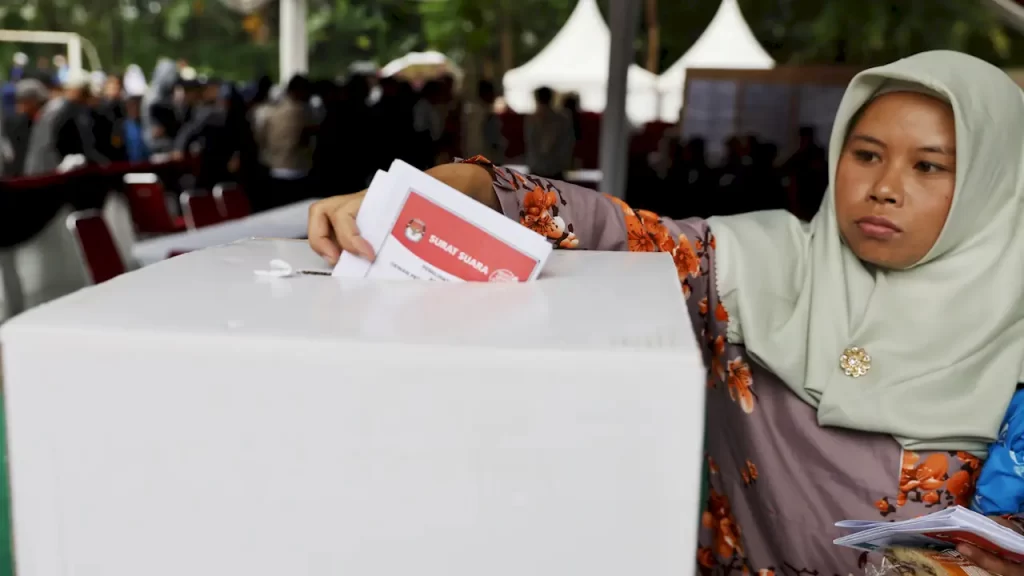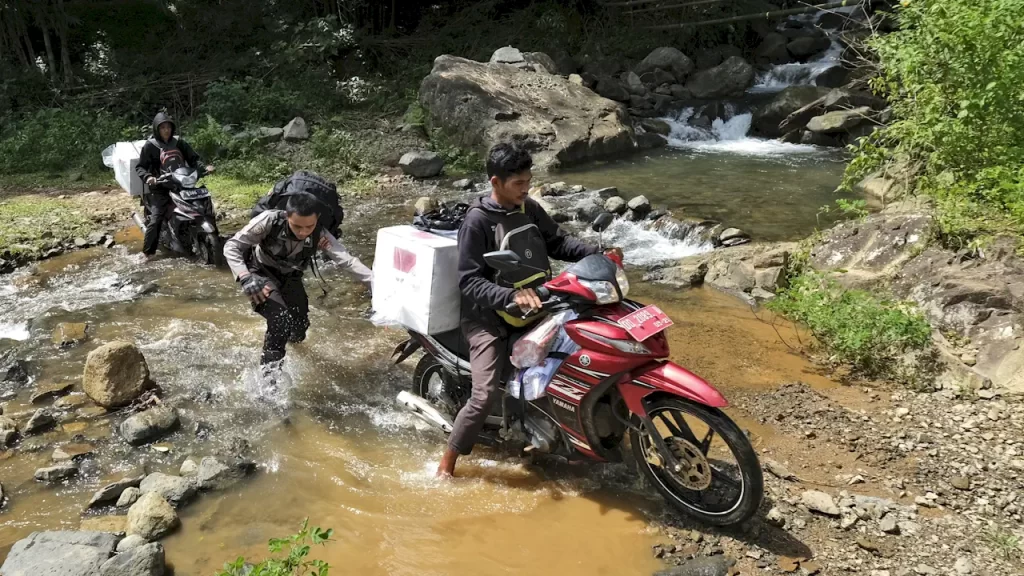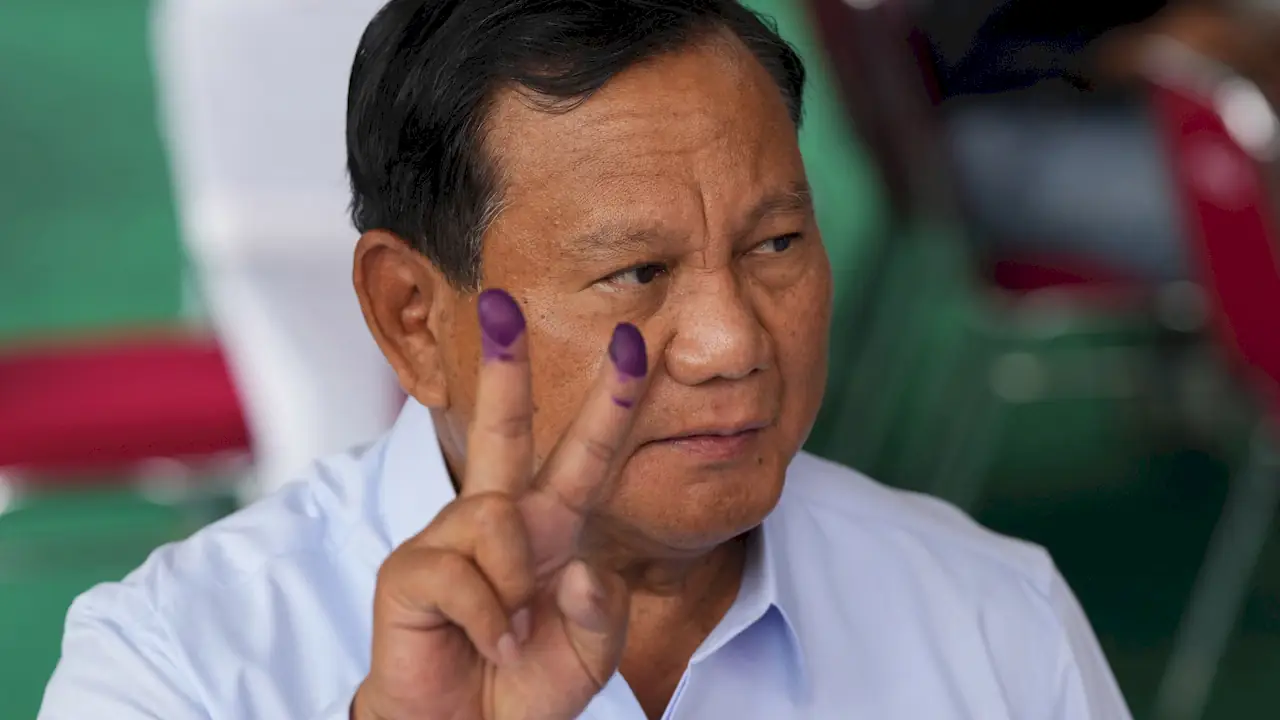Controversial former general Prabowo Subianto, the former son-in-law of long-time authoritarian leader Soeharto, looks set to be Indonesia’s next leader after securing what appears to be a convincing victory in this week’s election.
It may be a month before official results are confirmed, but exit poll “quick counts” from Indonesia’s well-regarded polling companies show Prabowo winning close to 60% of the vote, which would be a landslide victory. There will likely be no need for a run-off election in June.
The runner-up, Anies Baswedan, appears to have secured around 24 to 25% of the vote, while Ganjar Pranowo is sitting on just 17%.
Prabowo is therefore the clear choice of Indonesia’s voters, even though he was rejected three times in previous bids for the presidency or vice presidency; there are claims of human rights abuses against him (including alleged kidnappings, forced disappearances and war crimes by troops under his command); and his campaign was marred by accusations of unethical conduct and collusion.
How did he achieve this remarkable turn around, and what kind of leader will he be for the country?
Prabowo’s winning alliance with Jokowi
A key reason for Prabowo’s convincing victory is the fact he was not running against the immensely popular incumbent Joko “Jokowi” Widodo, who had defeated him in two previous elections and still enjoys approval ratings of well over 70%.
Jokowi was barred by a two-term limit from running again. So, this time – to the surprise of many – he decided to throw his very considerable electoral weight behind his former rival, Prabowo.
Although Jokowi claimed to be neutral in the campaign and never explicitly endorsed any candidate, his position became clear when it was announced that Prabowo’s vice-presidential running mate was Jokowi’s oldest son, Gibran Rakabuming Raka.

Their bid was controversial from the start due to a heavily criticised Constitutional Court decision that made Gibran eligible to run and allegations that Jokowi had encouraged improper campaign support for Prabowo and Gibran from government agencies. This led to many protests against the Prabowo-Gibran ticket in civil society, and even the release of a viral documentary called Dirty Vote.
However, it appears much of the electorate was unmoved by these scandals. After all, misbehaviour by the political elite is nothing new in Indonesia.
Moreover, most of Indonesia’s voters are too young to remember Prabowo’s dark past. Instead, they seemed captivated by the images of Prabowo as a cute grandpa and Gibran as cool, which had saturated the campaign.
Most importantly, many saw a vote for the pair as a vote for the continuance of Jokowi’s policies and even his political influence – the next best thing for them to a third term for Jokowi.
A major political shake-up
This meant a large block of votes that had previously gone to Jokowi shifted to Prabowo, ensuring his victory.
Because Jokowi is a member of former president Megawati Soekarnoputri’s PDI-P party, his supporters would normally have backed PDI-P’s presidential candidate, Ganjar. But Jokowi sabotaged Ganjar’s campaign by implicitly supporting his rival, leaving Ganjar to run a distant third.
Early indications suggest that while PDI-P will remain the largest party in the national legislature, its share of the vote may slide from 20% to 18%. This matters because the next-biggest parties look to be two that backed Prabowo – Golkar and Gerindra. Both received around 14% of the vote in the “quick count”, up from the last election in 2019.
In short, Jokowi has delivered a humiliating blow to Megawati and her party, which many will see as pay-back for Megawati’s arrogant treatment of Jokowi as a mere “party functionary” during his time in office.
It is a particularly galling outcome for Megawati, as Prabowo was her running mate when she lost the presidential election in 2009.
Given the controversies behind the Prabowo campaign, the losers are likely to challenge the result in the Constitutional Court. This is common after elections in Indonesia, and sometimes leads to recounts and even re-voting in some electorates.
However, Prabowo’s huge lead means an upset is unlikely. And, of course, Jokowi’s bother-in-law remains one of the nine judges on the Constitutional Court.

So, what’s next?
What can we expect from the new president? First, Prabowo will not take over immediately. Under the Indonesian system, he must wait until October to be sworn in. In the meantime, Jokowi will remain in office.
This means the next eight months will be a time of intense horse-trading, pay-offs and political deals, as the political and business elite – including Jokowi – manoeuvre to build a new regime and secure their places in it.
Oligarchs who backed Prabowo’s campaigns can expect to have cabinet seats and lucrative appointments given to them or their supporters, while Prabowo’s rivals will have to be placated or isolated.
These negotiations will take some time, not least because Megawati and her PDI-P will still be a force to be reckoned with. Prabowo will probably work with Jokowi to try to recreate the sort of grand alliance of parties that Jokowi constructed to control the national legislature. However, this time, PDI-P may choose to go into opposition. This would force Prabowo to make a major political recalibration.
Second, the democratic regression that marked Jokowi’s decade in office is only likely to increase under Prabowo. Under Jokowi, core democratic institutions like the Constitutional Court and the Anti-Corruption Commission (KPK) were undermined, restrictions on freedom of speech were strengthened, and critics of the government were targeted for prosecution.

Although he was reticent during the campaign, Prabowo has been very clear in the past that he thinks the democratic reforms that followed the fall of Soeharto in 1998, should be wound back. He is unlikely to do this immediately, but as he settles into office, a further gradual dismantling of democratic checks and balances, institutions and individual freedoms is very likely. Critics of Prabowo have good reason to be concerned.
Third, while the alliance with Jokowi was central to Prabowo’s victory, Prabowo has waited a very long time to finally claim the office he has sought for decades. He is 72 and a proud man in a hurry, meaning he is unlikely to be willing to be anyone’s puppet – or even partner – for long.
If he eventually breaks with Jokowi, it could force another major – and turbulent – reconfiguration of Indonesia’s political elite.
Implications for the West
Dealing with all this will create challenges for the West, but there are other problems that diplomats will have to confront.
The human rights abuses Prabowo is alleged to be responsible for as a former Special Forces commander – including in East Timor and Papua – are serious. They meant he was denied a visa to the US for many years, and could lead to protests if he visits Western countries as president.
Prabowo never faced trial, although several of his men were tried and convicted. He has denied any wrongdoing.
Prabowo’s carefully styled “cute grandpa” image will probably not last long, and Western democracies may find his more usual military-style strongman style much more difficult to deal with. He is a politician who is happy to take hardline, even fiery, nationalist positions when it suits him. He is also notoriously temperamental and quick to anger.
However, Prabowo spent time overseas as a child and during his army career and is more at ease internationally than many of his colleagues. And he is clever, strategic and often pragmatic, as his decision to ally with Jokowi demonstrates.
Many democratic countries managed to work effectively with Prabowo as Jokowi’s defence minister for the last five years. These leaders will likely take a deep breath, remember the strategic importance of Indonesia, and continue to do so for the next five, far more difficult, years.

